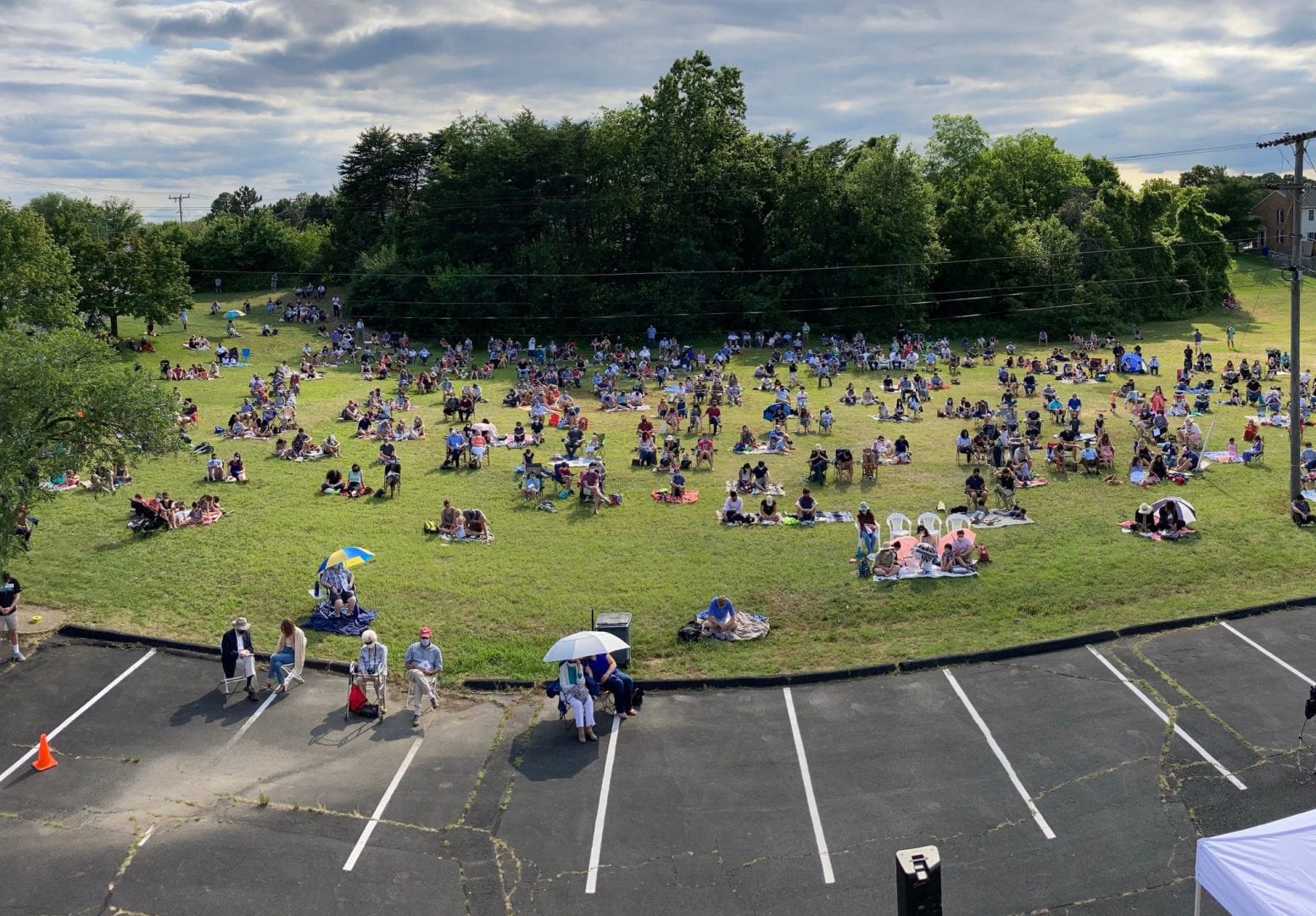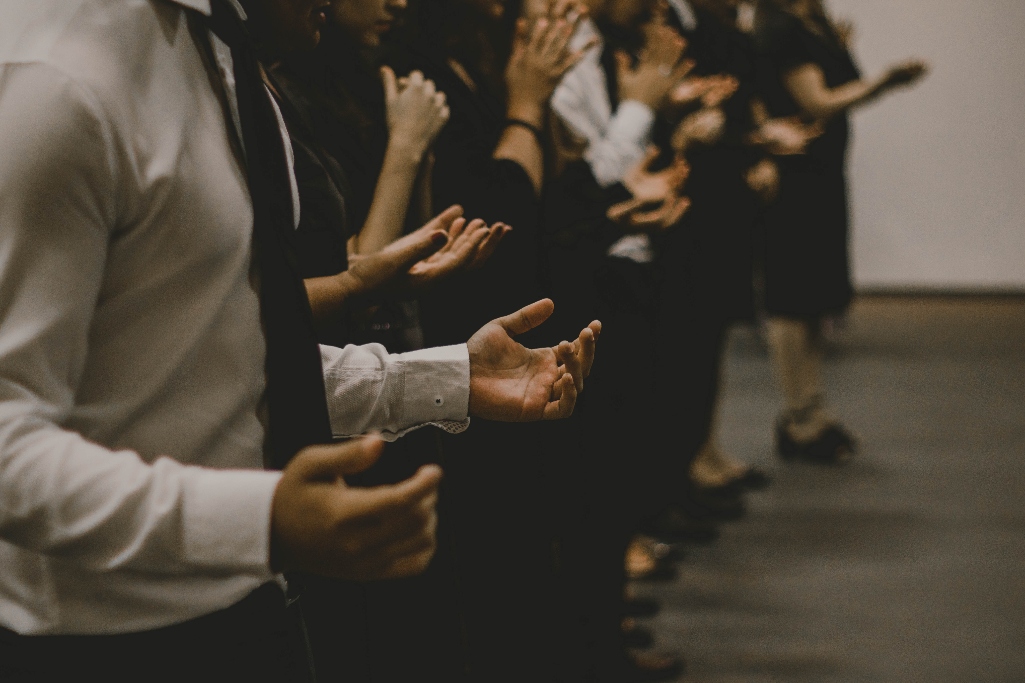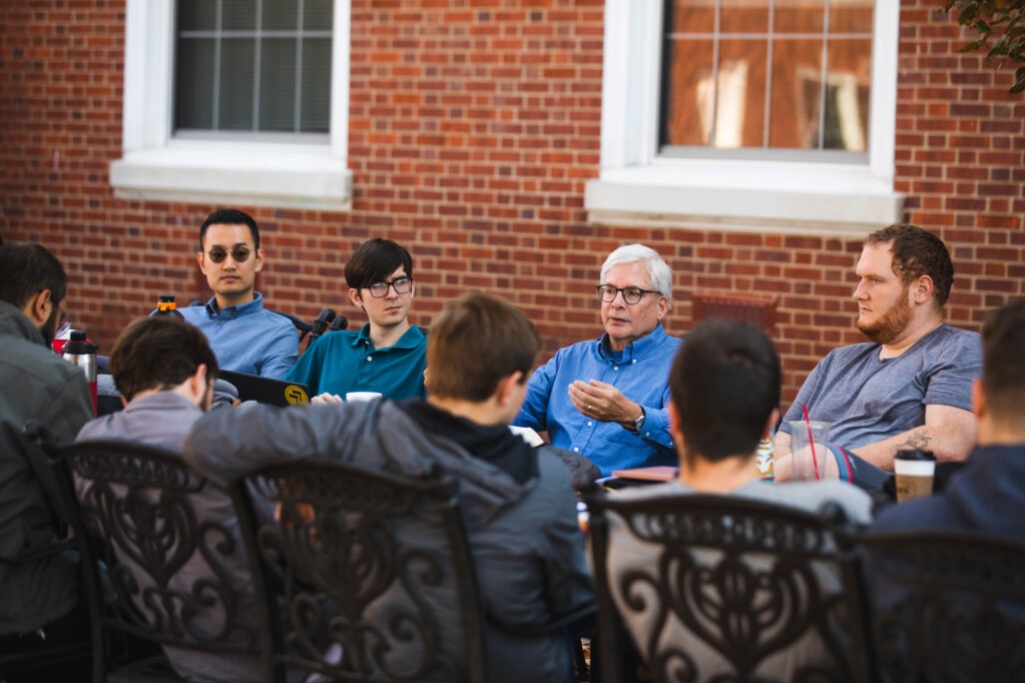
Since mid-June, CHBC has held corporate worship outdoors on Sunday evenings at the property of a Southern Baptist church in Alexandria, Va., where requirements are less restrictive.
A leading Southern Baptist church filed suit Sept. 22 against the District of Columbia in an effort to hold outdoor worship services while abiding by restrictions in place for other gatherings.
Capitol Hill Baptist Church (CHBC) sued the D.C. government and Mayor Muriel Bowser in federal court, contending the district’s restrictions in response to the COVID-19 pandemic violate the congregation’s First Amendment rights and the Religious Freedom Restoration Act. The 26-page complaint says Bowser’s order has been applied in a discriminatory manner, permitting gatherings of thousands for other events this summer while severely limiting the meetings of churches and other religious bodies.
The current D.C. regulation limits religious gatherings to 100 people or 50% of capacity, whichever is less, whether they are held indoors or outdoors. CHBC applied for a waiver from the restriction in early June but failed to receive a reply until after it filed an updated request Sept. 1, according to the complaint. D.C. denied the church’s request Sept. 15 despite the congregation’s commitment to require social distancing and the wearing of masks. CHBC’s members voted overwhelmingly Sept. 20 to file the suit.
In its complaint to the court, CHBC – which had a Sunday morning attendance of about 1,000 before the pandemic – says it “has a sincerely held religious belief that the physical, corporate gathering of its entire congregation each Sunday is a central element of religious worship commanded by the Lord.” Therefore, the church’s leaders chose long ago not to hold multiple services, and senior pastor Mark Dever decided not to live stream sermons during the pandemic because such a video “is not a substitute for a covenanted congregation assembling together.”
“A church is not a building that can be opened and closed,” CHBC pastor Justin Sok said in a written statement. “A church is not an event to be watched. A church is a community that gathers regularly and that community should be treated fairly by the District government.”
Russell Moore, president of the Southern Baptist Ethics & Religious Liberty Commission (ERLC), commended CHBC “as a model for all of us in engaging this matter with the governing authorities. They sought out a peaceable resolution and have consistently met and exceeded public health guidelines.”
D.C., “sadly, has chosen to act inconsistently and arbitrarily, treating houses of worship by standards other than those necessary to maintain public health, thereby coming into conflict with First Amendment protections,” Moore said in written comments. “Let’s pray that the District will quickly reconsider their actions or that the courts will do so for them, and that the church and the government in our nation’s capital can both serve their neighbors freely in their respective spheres.”
Thomas Bowen, director of the D.C. mayor’s Office of Religious Affairs, said in a statement, according to The Washington Post, the pandemic “has placed us all in a tough situation, leading us to make adjustments to all aspects of our lives. We have engaged with congregations to ensure houses of worship can plan their services in a way that it is safe for everyone.”
Since mid-June, CHBC has held corporate worship outdoors on Sunday evenings at the property of a Southern Baptist church in Alexandria, Va., where requirements are less restrictive. The church desires to meet outdoors in D.C., where more than 60% of its 850 members live.
In its complaint, CHBC contrasted the D.C. government’s treatment of churches and other religious bodies with its support for mass protests against the killing of black Americans attended by thousands or tens of thousands of people in June. Bowser spoke during at least one of those protests. The complaint also described the difference between the handling of the Commitment March in late August that drew thousands of participants and the government’s approach to houses of worship.
CHBC “takes no issue with [the district’s] decision to permit these gatherings, which are themselves protected by the First Amendment, and the Church supports this exercise of First Amendment rights,” it said in the complaint. “The Church does, however, take exception to Defendants’ decision to favor certain expressive gatherings over others. The First Amendment protects both mass protests and religious worship. But Mayor Bowser, by her own admission, has preferred the former over the latter.”
The complaint says the D.C. government’s “selective enforcement” of its rules has violated the church’s:
- First Amendment right to freedom of speech;
- First Amendment right to freedom of assembly;
- First Amendment right to free exercise of religion;
- Fifth Amendment right to “due process of law” regarding life, liberty or property.
It also says D.C. has abridged the Religious Freedom Restoration Act (RFRA), a 1993 law that requires the government to have a compelling interest and use the narrowest possible means in burdening religious exercise.
The lawsuit, Sok said, “simply asks that CHBC be permitted to meet in person, with similar restrictions as area businesses and other gatherings have employed to protect public health.”
“Meeting in person as one congregation is a deeply-held religious conviction for which there is no substitute,” he said. “Our simple desire is to have a community and one that meets together safely.”
On Sept. 2, Dever tweeted, “If we were on the other side of the Maryland/DC line, we could, this coming Lord’s Day, assemble up to 800 people in our building for public worship legally.”
CHBC has become known throughout much of the SBC since Dever became pastor in 1994. He later founded the 9Marks Ministry, which seeks to foster healthy churches. The ministry holds its “9Marks at 9” events on successive nights each year during the Southern Baptist Convention’s annual meeting.
Until the COVID-19 pandemic, CHBC had met in person every Sunday since its founding in 1878 except for three weeks during the Spanish flu outbreak in 1918, Sok said.
The ERLC has worked with state and local officials across the country and has reached out consistently to all 50 governors’ offices to provide guidance regarding religious liberty considerations during the pandemic, a staff member said.
Southern Baptist leaders commended guidelines issued in May by the federal Centers for Disease Control and Prevention for restoring in-person worship gatherings. The guidance reminded state and local officials to take the First Amendment right of religious liberty into account when they institute reopening policies. No church or other religious group should be called on to enact “mitigation strategies” stricter than those requested of “similarly situated entities or activities,” according to the Center for Disease Control.
(EDITOR’S NOTE – Tom Strode is Washington bureau chief for Baptist Press.)


